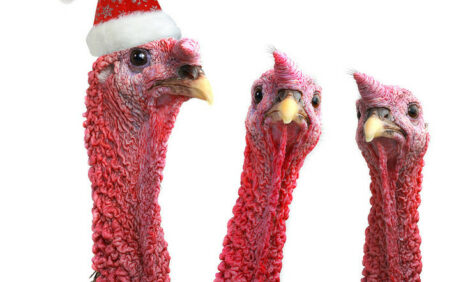



The EC proposes the legislation for its new Broiler Welfare Directive
EU - On May 31, 2005, the European Commission tabled a proposal for a Council Directive to establish EU animal welfare standards for broilers.Report Highlights:
The Directive, if approved by the Council of Ministers, would set out a maximum “stocking density” of 30 kg per square meter for live birds and establish a number of minimum conditions to ensure adequate welfare conditions. The proposal will now go to the June 20 Farm Council for discussion by the EU's Agriculture Ministers. The Commission would like to reach an agreement on the legislation by the end of 2005.
Broiler Welfare Directive
On May 31, 2005, the European Commission (EC) tabled a proposal for a Council Directive
to establish EU animal welfare standards for broilers. The proposed Directive can be found
at
http://europa.eu.int/eur-lex/lex/LexUriServ/site/en/com/2005/com2005_0221en01.pdf (PDF).
The proposed Directive sets out a maximum “stocking density” of 30 kg/m? for live birds.
For producers who also meet the requirements laid down in Annex II of this proposal, the
Member States (MS) can allow “stocking densities” of up to 38 kg/m?. Minimum conditions
to ensure adequate welfare conditions include standards for drinkers, litter, ventilation and
heating, noise and light in broiler establishments, but also for inspections, cleaning and
record keeping. Enhanced conditions in Annex II require extensive documentation of
production conditions, with stricter restrictions on ammonia and carbon dioxide
concentrations, and permanent temperature and relative moisture recording in broiler
establishments. Water consumption within each production unit must also be recorded on a
daily basis.
However, the Directive would not apply to:
- establishments with less than 100 chickens;
- establishments with breeding stocks of chickens;
- hatcheries
The proposed Directive is based on a report by the Scientific Committee on Animal Health
and Animal Welfare (SCAHAW) on "The Welfare of Chickens Kept for Meat Production
(Broilers)", following a request from the Commission. It specifies welfare standards for
broilers, extending on the general rules for the protection of animals of all species kept for
the production of food, wool, skin or fur or for other farming purposes, as they were laid
down in Council Directive 98/58/EC1 of 20 July 1998. The Eurogroup for animal welfare, which
represents the leading European animal welfare organizations, immediately criticized the
proposal as “seriously inadequate.” The proposal will now go to the June 20 Farm Council
for discussion by the EU's Agriculture Ministers. The Commission would like to reach an
agreement on the legislation by the end of 2005.
With 5 billion birds slaughtered every year in the EU, broiler production is by far the largest
European livestock sector. Stocking densities in most MS are currently 40-42 kg/m? and
producers fear that the increased costs for meeting these new requirements will aggravate
the EU broiler sector’s competitive disadvantage vis-à-vis Brazil and Thailand.
The largest producers of broilers in the EU are:

BeNeLux: Belgium, The Netherlands and Luxembourg are considered as one market
A new technical trade barrier?
The proposed Directive in its Article 5 has a provision for a report on the possible
introduction of a harmonized mandatory labeling for chicken meat based on animal welfare
standards.
Article 5 states:
“Labeling of chicken meat
Not later than two years from the date of adoption of this Directive, the Commission shall
submit to the European Parliament and to the Council a report on the possible introduction
of a specific harmonized mandatory labeling regime at Community level for chicken meat,
meat products and preparations based on compliance with animal welfare standards.
That report shall consider possible socio-economic implications, effects on the Community's
economic partners and compliance of such a labeling regime with World Trade Organization
rules. The report shall be accompanied by appropriate legislative proposals taking into
account such considerations and the experience gained by the Member States in applying
voluntary labeling schemes.”
When implemented, this labeling requirement, which is clearly intended to apply to poultry
imports as well, will put pressure on third country exporters, including the U.S. eventually,
to adopt EU animal welfare legislation.
Source: USDA, Foreign Agricultural Service - 16th June 2005









